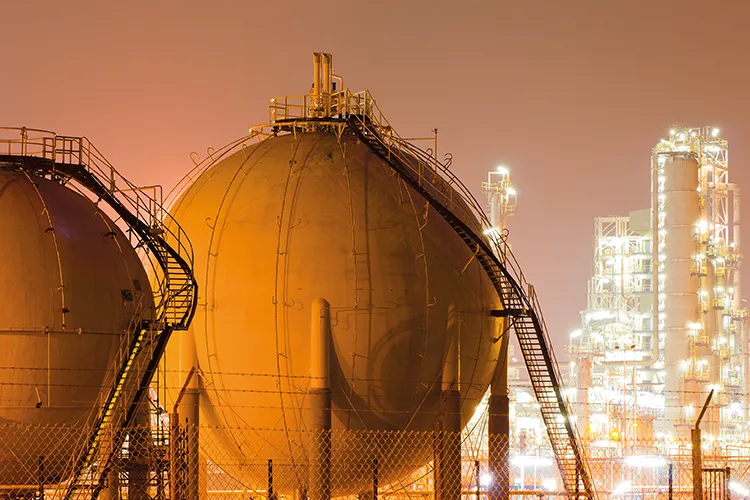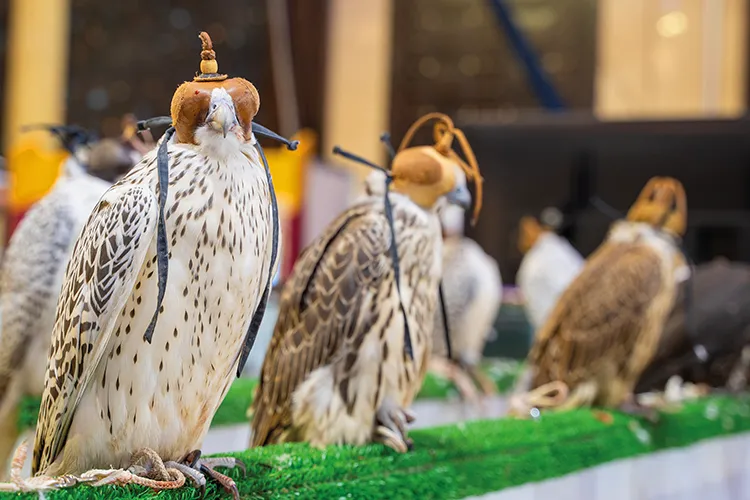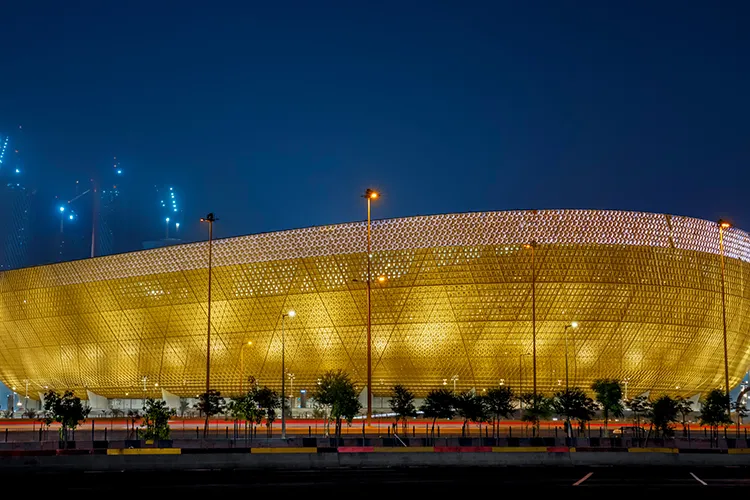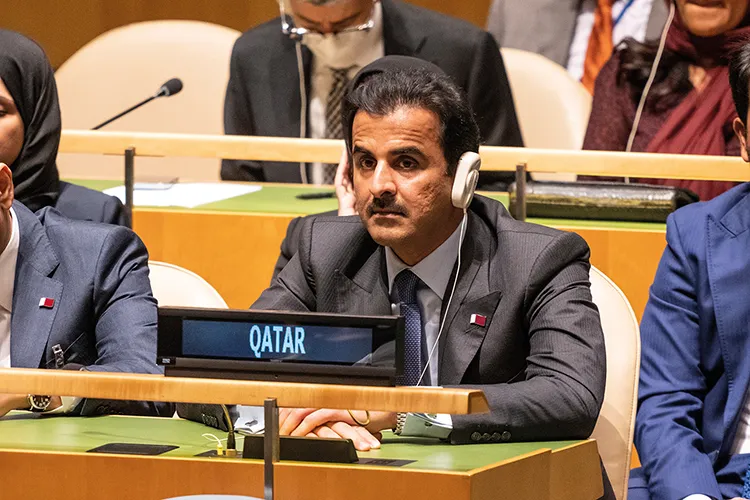
The small country with more migrant workers than citizens plays a complex geopolitical game
By
On 9 January 2024, US Secretary of State Anthony Blinken stood alongside the prime minister of Qatar, Mohammed Al Thani (a man appointed by the Emir of Qatar, who controls all appointments), and called him his friend. Moving on, he thanked the prime minister for all the work done by the country since the 7 October attacks on Israel. In doing so, Blinken was acknowledging Qatar’s importance to the USA in its attempts to contain the Israel/Gaza conflict and to secure the release of hostages. It’s a role the country has played before and in other conflicts. Qatar has long acted as a go-between and mediator between the West and its allies on the one side and various Islamist groups on the other. In this role, it is vital to the USA and potentially vital to the world.
But what motivates this small Gulf state in its actions on the world stage? And what makes it so important a partner to superpowers? After all, Qatar is tiny. At 11,637 square kilometres, it’s 1/20th the size of the UK. There are only around 300,000 Qatari citizens, about the same population as the city of Nottingham. The total population is 2.7 million, but the majority are foreign workers. Even including them, the country contains less than a third of the people living in London.
FACT FILE


AREA
Total land area: 11,610 square kilometres
POPULATION
As of August 2024, 3,058,661, including about 2.68 million migrants (88% of the population). In 1960, the total population was 36,010
GENDER
Only 24.7% of the population are women – the smallest percentage in the world
URBANISATION
97.3% of the population lives in urban centres
CAPITAL
Doha. Population currently estimated at 1.5 million – 49.1% of the population
RELIGIONS
Most Qatari citizens are Sunni Muslims (11% of the total population). More than 50% of migrant workers are Muslim. The remainder are Christians (13.7%) Hindus (15.9%) and Buddhists (3.8%)
Source: World Bank



For a long time, not a great deal was known about Qatar in the West, the country being dominated by its much larger neighbour and oftentimes rival, Saudi Arabia. But today, this is changing. Acting as a mediator in globally renowned conflicts has boosted its profile. Al Jazeera, the Qatari news channel partly funded by the government, has grown hugely in popularity and influence. And, perhaps most significantly, hosting the FIFA World Cup in 2022 (the first Arab- and Muslim-majority country to do so) made Qatar a household name, although not always for good reasons. Good and bad, we should expect to hear more from Qatar in the future.
A CHANGING NATION
Prior to the Second World War, Qatar was one of the poorest Arab nations – in fact one of the poorest countries in the world. Fast-forward a mere 50 years, and this is a past long-forgotten. Largely thanks to the country’s vast gas reserves and the previous emir’s bold decision to take on the debt required to build LNG (liquid natural gas) facilities, the state is, just like other Gulf States, very wealthy. Also, like other Gulf States, it’s a constitutional monarchy. Qatar is ruled by Sheikh Tamim bin Hamad al-Thani, who took over from his father in 2013 in what’s commonly referred to as a ‘bloodless coup’. Since then, the new emir has sought to diversify the country’s economy and boost its international profile.
In the past, these goals have been complicated by an uneasy relationship with the country’s neighbours. In 2017, Saudi Arabia, Bahrain, the UAE and Egypt began what was to be a three-and-a-half-year blockade of Qatar. The diplomatic crisis was a result of Saudi Arabia’s consternation at Qatar’s independent foreign policy, which saw it maintain close ties with the Muslim Brotherhood and with Saudi’s long-term enemy, Iran. Its sponsorship of the Al Jazeera Media Network was also a problem, as the news channel is often critical of other countries. The blockade came to an end in 2021, however, and since then Qatar has, if anything, maintained an even more independent foreign policy. The blockade also boosted efforts by the country to diversify its economy and trading partners.
Somewhat ironically, it’s Qatar’s very links to the Islamist groups, which so angered the Saudis, that have made it such a vital mediator for countries such as the USA.

MEDIATOR
Qatar’s historic links with Islamist groups, including Hamas, make it particularly useful (many would say essential) to the USA as a mediator. For some time, it has successfully straddled relations between these groups and Western nations, enabling it to maintain strong links with the USA despite its closeness with Iran (the USA houses its largest Middle Eastern military base within Qatar’s desert interior). Ever since the 1990s, Qatar has hosted negotiations and brokered deals, including between the USA and the Taliban. It oversaw the signing of peace deals for Lebanon, Yemen and Darfur. Today, it’s involved in talks between Hamas and Israel and is also involved with other conflicts, such as those in Sudan and Chad.
Qatar is the ultimate pragmatist in many ways, and this friends-with-all approach offers a clear opportunity to boost its reputation. On the other hand, managing relations between determined enemies hardly sounds like an enviable job. As David Roberts, a senior lecturer at Kings College and author of Qatar: Securing the Global Ambitions of a City-State notes, walking this line can leave Doha vulnerable to blame when things go wrong. ‘There are people in Doha who appreciate that it can be a bit fraught,’ he says. ‘It can be a bit of a dangerous thing to do. You are engaging with Israel and with Hamas. But the bit that everyone needs to remember is that they were literally asked to do it. That’s not a rumour – it’s on the record. They were beseeched by the American and Israeli governments to do what they could to keep going and keep the key relations with Hamas. That earns a certain amount of thanks and plaudits in some quarters.’

Urban Conningham, a research fellow at the Royal United Services Institute, the UK’s oldest defence and security think thank, concurs. He says that it was the USA that specifically asked the Qataris to host the political bureau of Hamas in Doha, something they agreed to do. Back in 2011, they acted in a similar capacity, agreeing at the behest of the Americans to open an office for the Taliban in Doha, a place where Afghan and Western governments could meet and negotiate. ‘I think for Qatar, being this hub where dialogue is possible has been very useful for them,’ says Cunningham.
Roberts posits that much of Qatar’s desire for this kind of influence comes from a need for security. ‘You’re small and rich, and you’re in a region that has had a war roughly every ten years. Essentially, you need strategies to secure security,’ he says.

Conningham agrees. ‘In comparison with Gulf neighbours such as Saudi and the UAE, Qatar and Oman have less economic and military weight. They, therefore, use alternative means to project power and achieve influence in the region. Mediation, alongside soft power and foreign aid, have emerged as key parts of these efforts. Through mediation, Qatar hopes to prove itself as an indispensable partner, to the West as well as other emerging poles of geopolitical power.’
Diana Galeeva, currently an academic visitor at the University of Oxford and author of Qatar: The Practice of Rented Power, contends that the country has been successful in its ambitions, particularly for such a small state. ‘Qatar, in many regards, has changed the perception of a small state in the international arena,’ she says. Some of this comes down to its mediating role, she adds, but it’s also a result of its interactions in other spaces, including media and sport.
Acting as mediator in global conflicts is one way to extend influence, but there are others available, and Qatar is making use of them. In recent years, Qatar’s soft-power plays have projected its image around the world just as much as its geopolitical ones. Hosting the World Cup in 2022 was a significant move for the country, one with symbolic importance. It also forced Western nations to properly confront something that has been apparent for some time: the Gulf States have a growing influence in international sport.
QATAR AND CLIMATE CHANGE
Qatar is extremely vulnerable to climate change. With 97 per cent of its population living in urban areas along the coast, sea level rise is a serious problem. It’s also heating rapidly. Average temperatures have already risen more than 2°C above pre-industrial levels. Annual rainfall can be as little as two centimetres and the country relies on desalination for most of its drinking water, which requires a huge amount of energy. In its approach to this challenge, Qatar appears to be following the same policy it employs in other areas: be all things to all people. As John McManus notes in his book, Inside Qatar, the country talks a good talk but ultimately does very little: ‘Build solar capacity but pump out more gas; talk about the environment but don’t alienate the oil companies. Be all things to all people and hope that it allows you to squeeze through.’

SOFT POWER
As soon as it was announced that Qatar was due to host the World Cup, critics of the regime began to write about its system of employing foreign workers. As preparations ramped up, numerous reports emerged of labourers (mostly from India, Pakistan, Nepal, Bangladesh and Sri Lanka) working in dangerous conditions in sweltering temperatures and living in squalid accommodation. Human rights groups said that workers were being forced to pay huge recruitment fees only to have their wages withheld and their passports confiscated in a system that amounted to forced labour. Then there were the deaths. While it’s difficult to know the true number that died working on World Cup projects, human rights groups put it in the thousands.
Closer to the tournament, the country did implement some changes. Most notably, in 2019, the infamous kafala system (a sponsorship programme in which employers import foreign labourers and bind them to a contract for a specified time period) was formally abolished. Qatar now works with the International Labour Organization (ILO), which notes in a recent report that measures taken, ‘have already improved thousands of workers…’ Nevertheless, problems are clearly ongoing. According to the ILO: ‘Urgent additional efforts are needed to ensure that all workers can benefit’.
Ultimately, however, once the World Cup was over, criticism diminished. If Qatar suffered a dent in its reputation, it doesn’t seem to have been particularly damaging in the long run. ‘Qatar proved itself a successful venue to host such an important event,’ says Galeeva. ‘I think the World Cup definitely was a turning point in terms of a soft power tool to really put Qatar worldwide. After it, we started to see other Gulf countries very actively use the soft-power tools, especially sport.’
The ebb and flow of criticism around the World Cup highlights a recurring theme when it comes to Qatar and the Gulf States more generally. The West might not like everything they do, but they don’t have much choice but to engage. A lot of that comes down to oil and gas.
GAS DEPENDENTS
‘Qatar will never run out of gas,’ says Roberts. ‘Never. It is almost impossible for Qatar to run out of gas.’ The state contains 14 per cent of all known natural-gas reserves, behind Russia and Iran. And, for now, whatever might be coming in the future, demand is high. Always a leading supplier (it vies for the top spot with Australia), Qatar is now even more important following Putin’s invasion of Ukraine.
‘Many European states now depend on Qatar for their energy security, as its LNG has filled the gaping gap that Russia used to fill,’ explains Urban Conningham. He adds that this has proved something of a dampener on any criticism the country received during the World Cup. ‘It has been a dramatic turnaround for Qatar. From high-level criticism of its human rights record during the World Cup to European heads of state flocking to be the first to land in Doha and shake hands with Sheikh Tamim in order to sign energy deals. Many of these deals are long term and will mean that the West has a long-term energy dependency.’
Take German chancellor Olaf Scholz, Conningham adds. Taking a principled stance, the chancellor refused to visit Qatar prior to the World Cup due to its human rights record. But once Putin invaded Ukraine, he flew over and signed a 15-year gas deal. At the outset of 2022, Russia was meeting roughly half of Germany’s natural gas needs. The invasion left it in dire need. Pragmatism beats principle.
Continued success with its gas reserves doesn’t mean that Qatar is oblivious to the changes that will eventually come. The nation has long been aware of the green transition and knows that the demand for its gas will run out long before the actual resource is depleted. In strategy documents, the country’s leadership is clear on the need to diversify, hence the investments in sport, culture and tourism. In the long term, much will depend on its success in these ventures. In the short term, however, it can, and is, reaping the benefits of abundant fossil fuel resources.
TIMELINE
1766: Migration from Kuwait establishes Qatar as a small pearl-diving and trade centre.
1825: Al-Thani dynasty establishes control over Qatar peninsula.

1871: The Al-Thanis submit to control by the Ottomans.
1913: The Ottomans agree to a British request to withdraw their troops from Qatar.
1916: Treaty is signed giving Britain control over foreign policy in return for protection.
1939: Oil reserves are discovered, replacing pearling and fishing as Qatar’s main source of revenue.
1950s: Oil revenues rise dramatically, causing serious infighting in the Al-Thani dynasty.
1971: Qatar achieves full independence from Britain.
1971: Qatar discovers the offshore North Field, one of the largest gas fields in the world.
1972: Khalifa bin Hamad Al Thani takes power in a palace coup after infighting in the ruling family.
1981: Qatar joins Arab Gulf neighbours in establishing the Gulf Cooperation Council, an alliance formed to promote economic cooperation and defence following the Iran-Iraq War.
1995: Sheikh Khalifa is deposed by his son, Hamad.
1996: Qatar sets up Al-Jazeera TV.
2003: USA uses Qatar as a base to direct the US-led military campaign in Iraq
2006: Qatar becomes the world’s leading exporter of liquid natural gas.
2017: Diplomatic crisis ensues when Saudi Arabia leads a transport blockade of Qatar, in an attempt to get Qatar to cut its connections with radical and Islamist groups, and distance itself from Iran. The crisis ends in 2021.
2022: Qatar hosts the FIFA World Cup, held in November and December.

A NEW WORLD
None of the above really tells us what is life actually like in Qatar. The answer depends entirely on who you are. Conditions are clearly very different for citizens compared to the foreign workers who, despite improvements, toil in the extreme heat and live poor lives. It’s hard to think of somewhere more obviously unequal. Roberts, who lived there for many years, contends that the actual citizens have a fairly comfortable existence. Socially conservative but not as strict as neighbouring Saudi (the numerous hotels serve alcohol for example and it’s possible to buy pork products), he describes a family-oriented culture where people attend nightly gatherings called majlis.
This comfort might go some way to explaining why Qatar, like other Gulf States, is remarkably stable, as autocracies go. There is very little protest and no clear calls for greater democracy. ‘During the Arab Spring, there was simply nothing,’ says Roberts. ‘I was living there during the Arab Spring… there was nothing. There was an alleged protest that was going to happen according to one Facebook post, and I went down to the place where it was supposed to start. It was just me and another journalist just walking around. That’s not because the government is some grand repressive regime, it’s because citizens are fairly content.’
WOMEN IN QATAR
In any discussion about Qatar, women are usually and notably absent. The society is a conservative one and women and men live very different lives. According to Human Rights Watch, women in Qatar must obtain permission from their male guardians to marry, pursue higher education on government scholarships, work in many government jobs, travel abroad until certain ages, and receive some forms of reproductive health care. Unmarried Qatari women below 25 require their guardian’s permission to travel outside Qatar, and men can petition a court to prohibit their wives and other female relatives’ travel. Qatar’s most prominent woman is probably Moza bint Nasser, mother of the current emir. A glamorous and successful philanthropist who has been named as one of Forbes’ 100 Most Powerful Women, she demonstrates that it is not impossible for women to have influence in Qatar, though perhaps only at the very top.

Given this, and given ever-increasing links between the West and Qatar, politically, economically and culturally, the country offers an interesting example of the ways in which democracies such as the UK are being forced to reconsider their view of the rest of the world. While promoting democracy has long been a stated aim of successive UK governments, as determined non-democracies, such as those in the Gulf, become more open and more interlinked with the West, can we really maintain this position? We may not agree with the Qatari way of doing things, but can we continue to criticise, while dealing ever more closely with it? Roberts is clear on this point. He thinks that the UK has to be careful in the way it treats and speaks about Gulf nations. ‘We need to be careful about starting our analysis with the expectation that maybe one day these other “inferior” states will ascend to our level of democratisation, or our level of political development,’ he says.
Conningham says that we may come to see a shift in the way we talk about other nations that aren’t democracies. ‘At the moment, within the Foreign Office, there is a big debate going on, because a lot of funding goes into democratisation,’ he says. ‘It raises the question of: is democracy the right answer in a lot of these contexts? And ultimately: does democracy suit the UK’s interests?’ He makes the point, as an example, that if there was a free election in Egypt or Jordan tomorrow, then there would likely be a Muslim Brotherhood governments within those countries – not something the UK would be keen to see.

‘In the Gulf, the monarchies are genuinely quite popular,’ he adds. ‘It obviously depends from ruler to ruler, but at the moment, the West has no choice but to engage. That’s not going to change at any point soon.’
Most experts you talk to about Qatar agree that, in general, Qataris think highly of the UK. There are close ties between the two countries; many Qataris are educated in the UK and have homes here. However, most also add that Qatari citizens look with contempt at UK criticism of the country’s regime, viewing much of it as patronising, even racist. Some of this is unfounded. Those who criticise the country’s human rights record are well within their rights to do so, given the shocking reports about labour conditions that arose during the World Cup construction work. Nevertheless, the sense from many external commentators is that being overly negative and overly prescriptive about Qatar and its neighbours – essentially, virtue signalling – does us no favours.
From countries that were only ever considered in the context of their vast wealth or their repression of freedoms, the Gulf States are now emerging into a new world order. Qatar, tiny as it is, clearly wants in on the action and, so far, it is succeeding. The West will need to decide how it responds and how it engages.

THE EMIR
There have been eight rulers of Qatar – all members of the sprawling Al Thani family. The current emir, Tamim bin Hamad bin Khalifa Al Thani, 44, is the fourth son of the previous emir, born to the second of his wives. Despite employing cultural traditions that are alien to the UK (Tamim Al Thani has 13 children and three wives), Qatari emirs maintain close ties with the upper echelons of British society. Tamim was educated at Sherborne and Harrow schools and then attended the Royal Military Academy Sandhurst. Although said to be more religious and conservative than his father, he at least leans towards modernisation. He founded Oryx Qatar Sports Investments in 2005, which owns Paris Saint-Germain football club, and he headed Doha’s unsuccessful bid for the 2020 Olympics. In his inaugural speech to the nation on 26 June 2013, he pledged to continue to diversify the country’s economy away from hydrocarbons, although progress on this has been slow.





